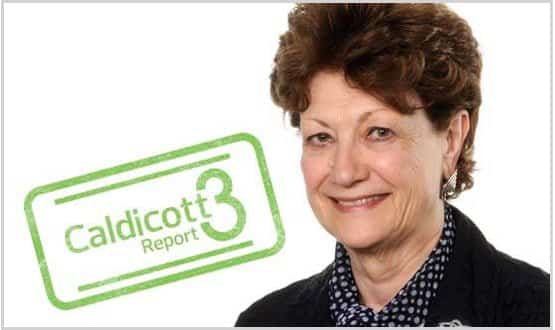Caldicott: future of patient opt-outs a ‘challenge’
- 8 September 2016

Existing schemes to allow patients to opt-out of sharing their health data will not be immediately affected by the third Caldicott report but their future is far from assured.
Speaking as the Health and Social Care Innovation Expo in Manchester on Thursday, Dame Fiona Caldicott said “there is huge interest in what the consequences of the report are and what is going to happen to current opt-outs”.
These arrangements would not change “yet”, she said. But, if the review’s recommendations of a new national opt-out scheme were accepted, the government would have to make a decision on 50 opt-out arrangements already scattered through the NHS.
“One of the challenges for the Department of Health and other organisations working in this area is how that is going to be addressed,” she said.
In April, after much delay, the then HSCIC (now NHS Digital) actioned the request of 1.2 million people who had asked that their health data not be shared beyond their GP. It is unclear how Dame Fiona’s recommendation would affect these patients.
In September last year, the health secretary asked Dame Fiona to conduct a review information governance, patient consent and data security.
At the time the government’s attempt to collect, link and share more patient health data centrally, known as the care.data programme, was on hold over privacy and security concerns.
Her subsequent review released in July this year recommended that trusts make security control as high a priority as financial control, introduce tougher IG governance and criminal penalties for serious malicious data breaches.
It also recommended that patients be given the option to opt-out of having their personal health data used beyond direct care, although not out of their data being collected and shared centrally.
Following the release of the review, the government dumped care.data permanently, but the government has indicated that it will continue to pursue an agenda of greater national collection, linking and sharing of patient health data.
The government public consultation into Dame Fiona’s review closed on Wednesday, with 600 submissions received.
Dame Fiona said on Thursday that the number of submissions, half of which came from the public, “shows how much interest there is in that area”.
In talking to people for the report, she said many members of the public were willing to share their data for secondary uses but needed more information.
“It is about trust and becoming trustworthy and the fact that the public doesn’t want to have surprises about how their information is shared.”
NHS Digital will be central to that effort but some of its new programmes to improve central collection of health data have already sparked accusations of resurrecting care.data by stealth.
Speaking on a panel with Dame Fiona on Thursday, NHS Digital chairman Noel Gordon said it was clear trust needed to be rebuilt.
“We are in the process here, thanks to Dame Fiona’s work, of implementing a whole series of confidence measures. We are not entitled to expect public trust automatically.”
However, gaining that trust was vital to unlock the potential of big data and digitalisation of healthcare, he said
“To be able to take advantage of that huge threshold we are about to step over, we have to be able to reassure the public… that we understand what protecting data is really all about.”




